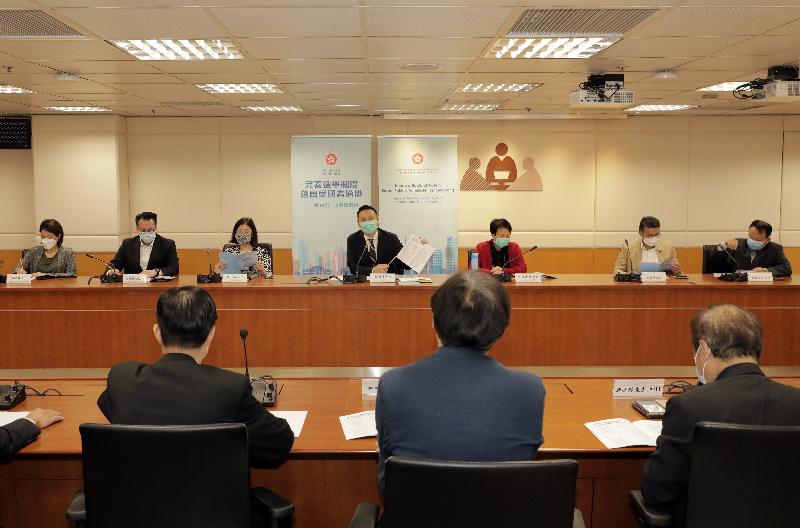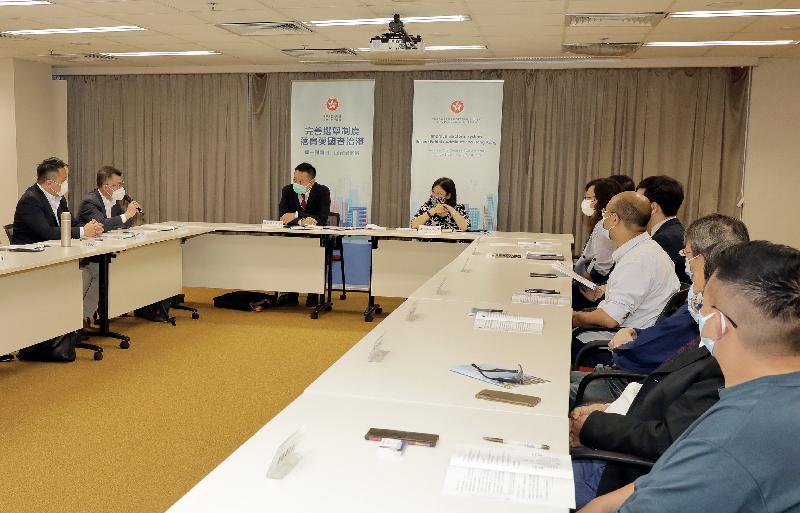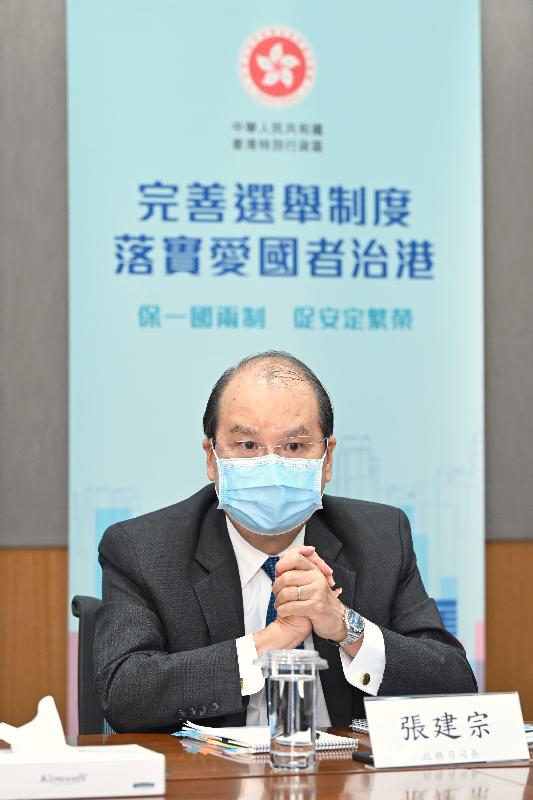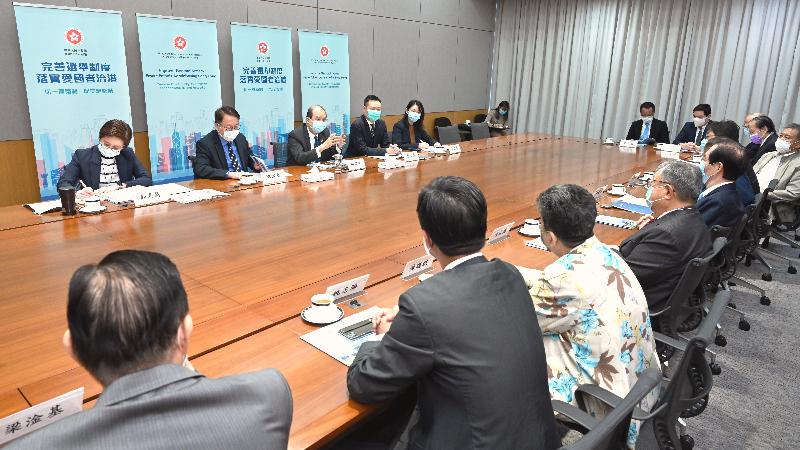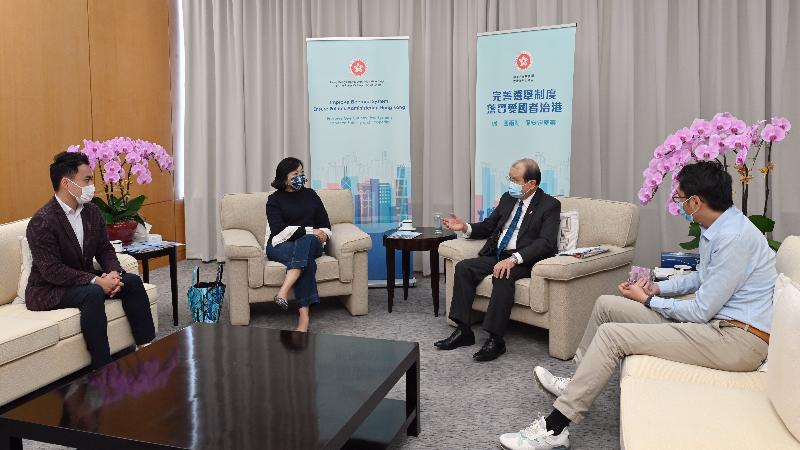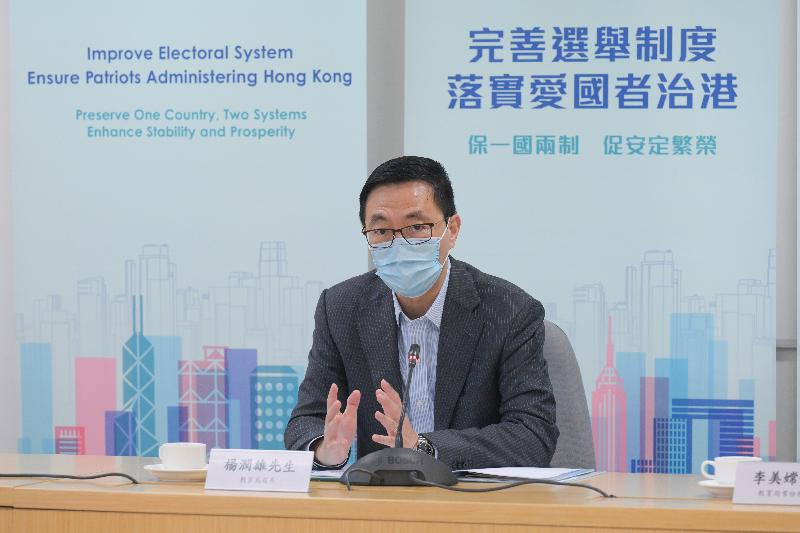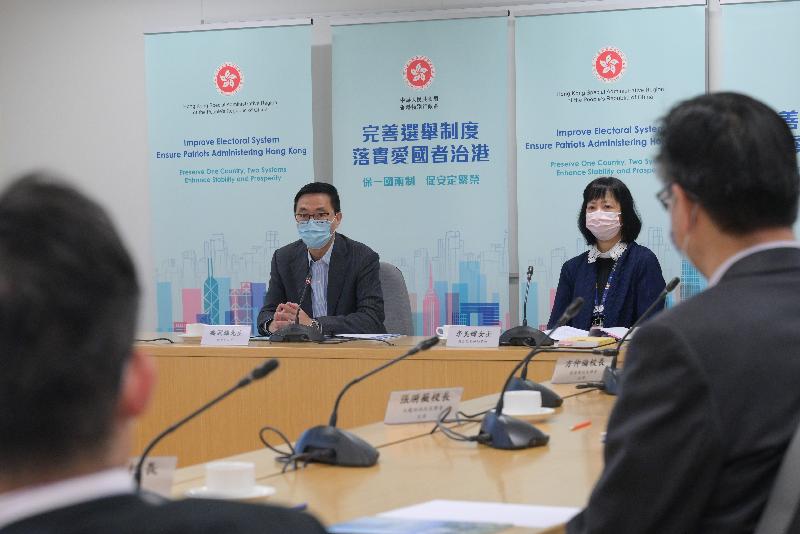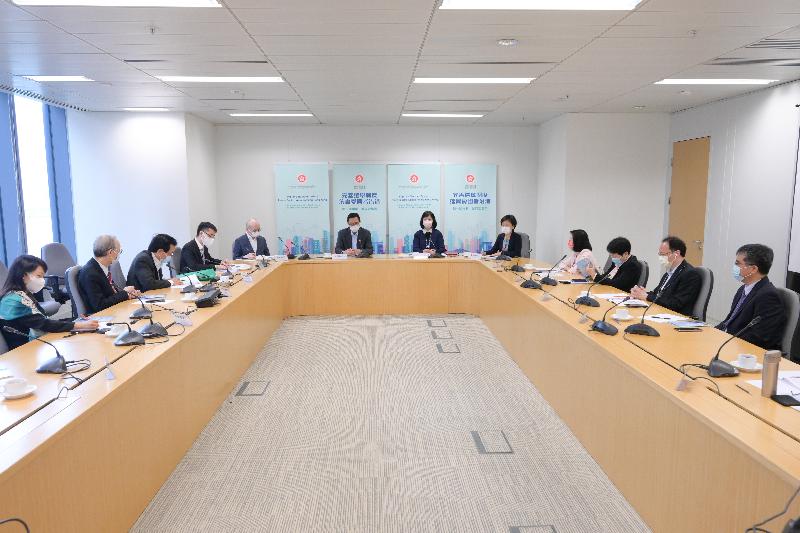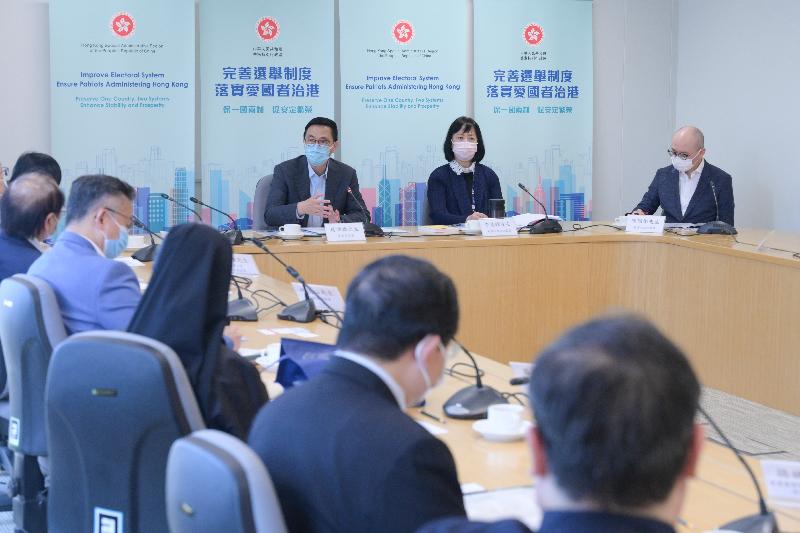SHA continues to hold briefing sessions on improvements to electoral system of Hong Kong (with photos)
The Secretary for Home Affairs, Mr Caspar Tsui, today (April 7) held two briefing sessions and met with representatives of District Fight Crime Committees, District Fire Safety Committees and Area Committees of Kwun Tong District and Sha Tin District to brief them on the amended Annex I to the Basic Law on Method for the Selection of the Chief Executive of the Hong Kong Special Administrative Region (HKSAR) and Annex II to the Basic Law on Method for the Formation of the Legislative Council of the Hong Kong Special Administrative Region and its Voting Procedures as approved by the Standing Committee of the National People’s Congress.
During the briefing sessions, Mr Tsui introduced the background, basic principles and major contents of the improvements to the electoral system of the HKSAR. He said improving the electoral system of the HKSAR and implementing the “patriots administering Hong Kong” principle is conducive to the progress of the “one country, two systems” principle and can ensure the long-term prosperity and stability of Hong Kong.
He called on support from the attendees for the amendments and reiterated that the Home Affairs Bureau will fully co-operate in the work of improving the electoral system and spare no effort in explaining the amendments.


